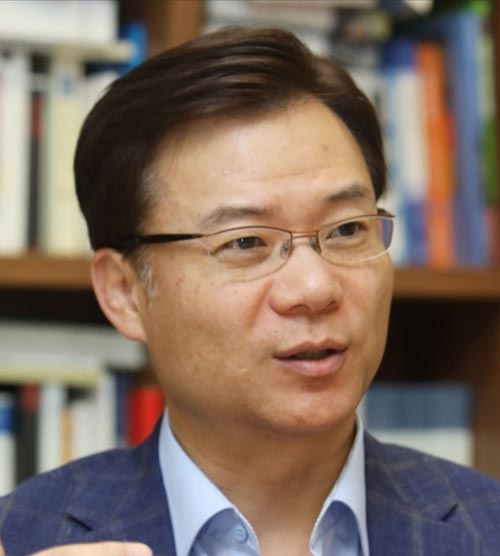Novel Coronavirus and Chinese students
By Professor Ihn-hwi Park
The following article was contributed by Professor Ihn-hwi Park of Ewha Womans University in Seoul. Professor Park is concurrently the vice president of the Korea Association of International Studies and was a member of the Security Advisory Committee of the Presidential Office of Cheong Wa Dae in Seoul in 2017 to19. He also served as the vice president of the Ahnmin Institute for Public Policy from 2015 to 2019.—Ed.

According to a document issued by the Ministry of Education, the number of international students in postsecondary institution in South Korea is over 160,000 and there are more than 60,000 Chinese students enrolled in local universities. This high number of international students resulted from the increased number of foreign students choosing to study in South Korea in the 2010s. This demonstrates that South Korea has become a country producing highly educated human resources in international community. As universities in metropolitan area and other provinces are overflowing with international students, university campuses are deemed a small version of global society. Since South Korea is expected to confront a shortage of students going to college due to the population decline, it seems like there will be more influx of students from overseas into South Korea.
South Korean society is currently suffering from the novel coronavirus outbreak. It was shocking to me, having no experience of leaving college campuses over last thirty years, to see the South Korean universities’ decision to postpone their spring semester amid fears of virus because this marks the first time the semester has been delayed across the country. In the beginning, the measure was known to find ways of managing their Chinese students returning to South Korea after spending their winter vacation in their home country. As the virus has started to circulate in the regional community through community transmission, the temporary campus shutdown seems necessary for everyone’s health and safety. At this time of the year, campuses are usually filled with faces of academic curiosity and excitement, but this spring’s campus seems very quiet and empty. Especially, it is hard to feel excitement from the campus that used to be crowded with students from all over the world.
South Korean society is having serious arguments and disputes over not banning people from China when news broke that a new virus was spreading in Wuhan, China. Although it is difficult to understand the accurate scientific effectiveness of the entry restriction, the contention is not meaningless since the fact that the epicenter of the coronavirus is Wuhan, China cannot be denied. However, scientific approach to prevent and control the disease should not spark China phobia and should not lead to hostility towards Chinese students coming to study in South Korea as well.
Korea and China have developed a shared community in thousands of years of history. The two countries are often at each other’s throat in political and security realm, but they are inextricably linked socioeconomically. Even if it is not China, a neighboring country, that we are talking about, we can travel to all corners of the world with just a few clicks. We can also invest and buy stocks globally with smartphones. Global society is pursuing more integrated society over the years and global markets are fast becoming more unified. Although major countries are embracing nationalistic movements such as Trumpism and Brexit is the political hot potato, steps to build a global community has continued for last three hundred years. Therefore, this time can be considered as a period of adjustment.
In his book The Open Society and Its Enemies, Karl Popper harshly criticized totalitarianism and revolutionary changes. For Popper, who experienced both World War I and World War II as a European intellectual, inflexible political cultures of Nazism and Communism might have been objects of contempt. Ironically, the enemies of open society we are facing today look quite different from the past. As we can see in the China’s coronavirus case, the closed social culture caused ‘the tragedy of the Wuhan pneumonia,’ suggesting that the 21st Century totalitarianism, preventing open and transparent society, is the one of the enemies against open society. At the same time, however, a false accusation and public fears towards Chinese people are other forms of enemies to open society we need to get more cautious as well.
As a model country that achieved democratic development, we should deal with the enemies against the open society with more confidence. Reinforcing national preventive and control measures for diseases are always welcomed, but prejudice towards others cannot be accepted. The transmission of novel coronavirus, spreading through respiratory droplets produced when an infected person coughs or sneezes, will die off in any ways. It is now common knowledge that MERS and SARS are also strains of coronaviruses and it is expected that new strains of coronaviruses can be always identified again in the future. We should avoid making unnecessary enemies against open society in the Northeast Asian community we are living in. We should rather clearly distinguish which problems should be solved with scientific approach, with diplomatic approach, with rules of everyday life, and with our mindset. I hope university campuses return to their ordinary atmosphere where we can see a small version of global society filled with peace and cheerful vibes as soon as the spread of the disease abates.

